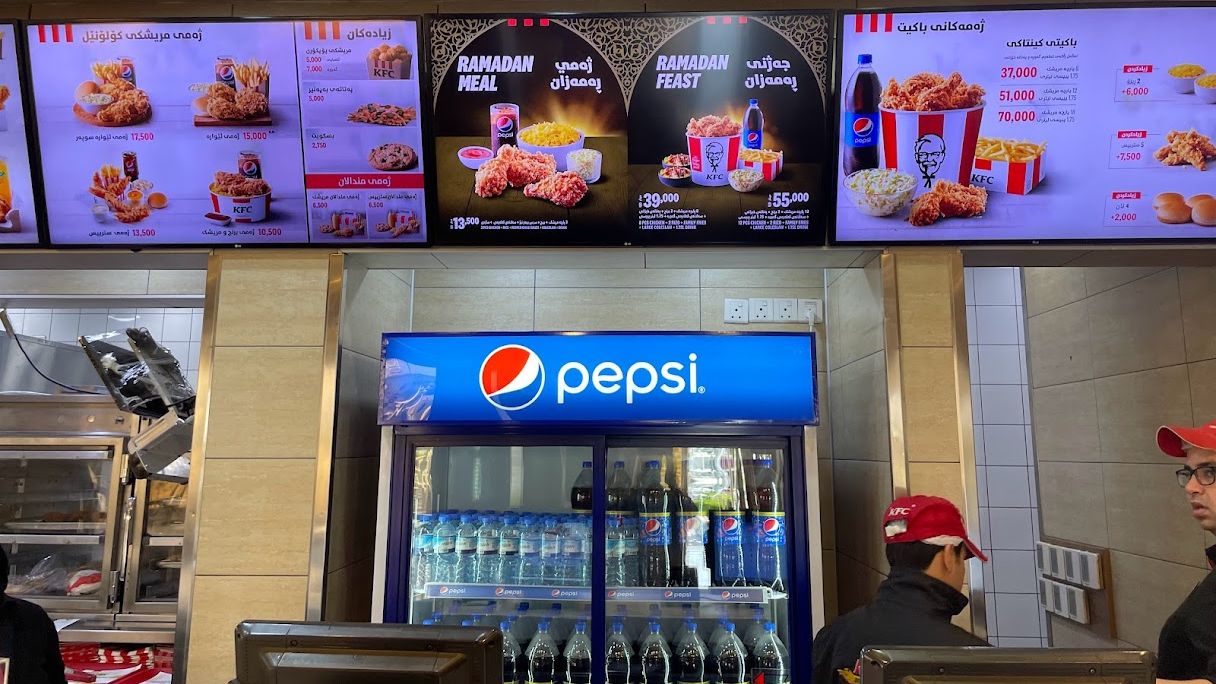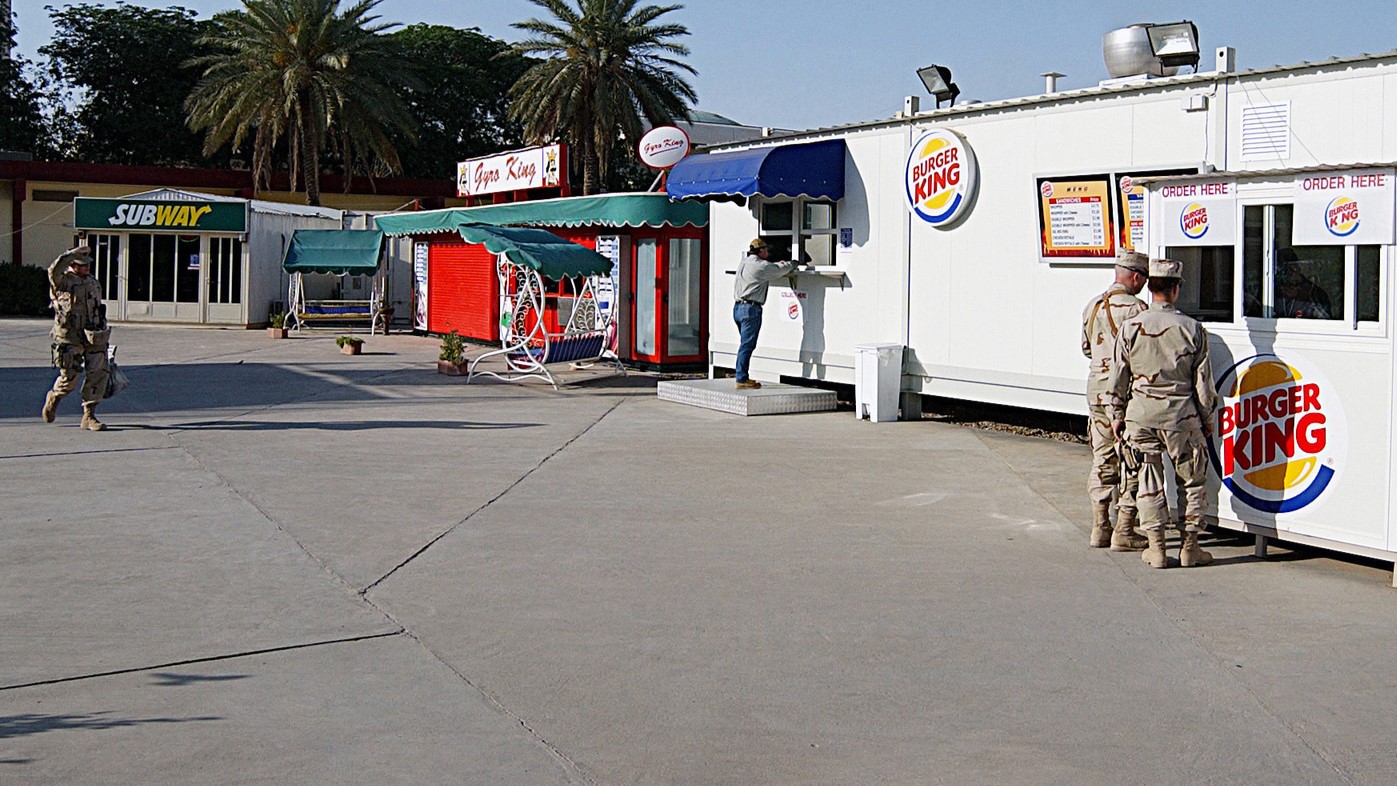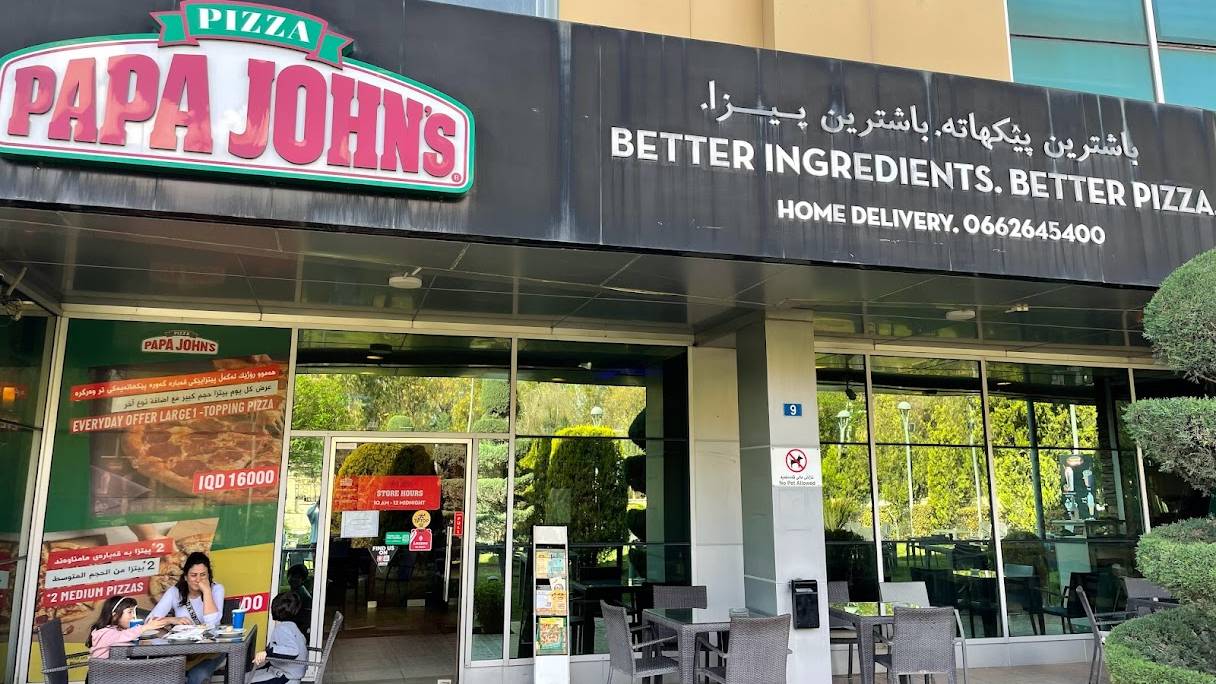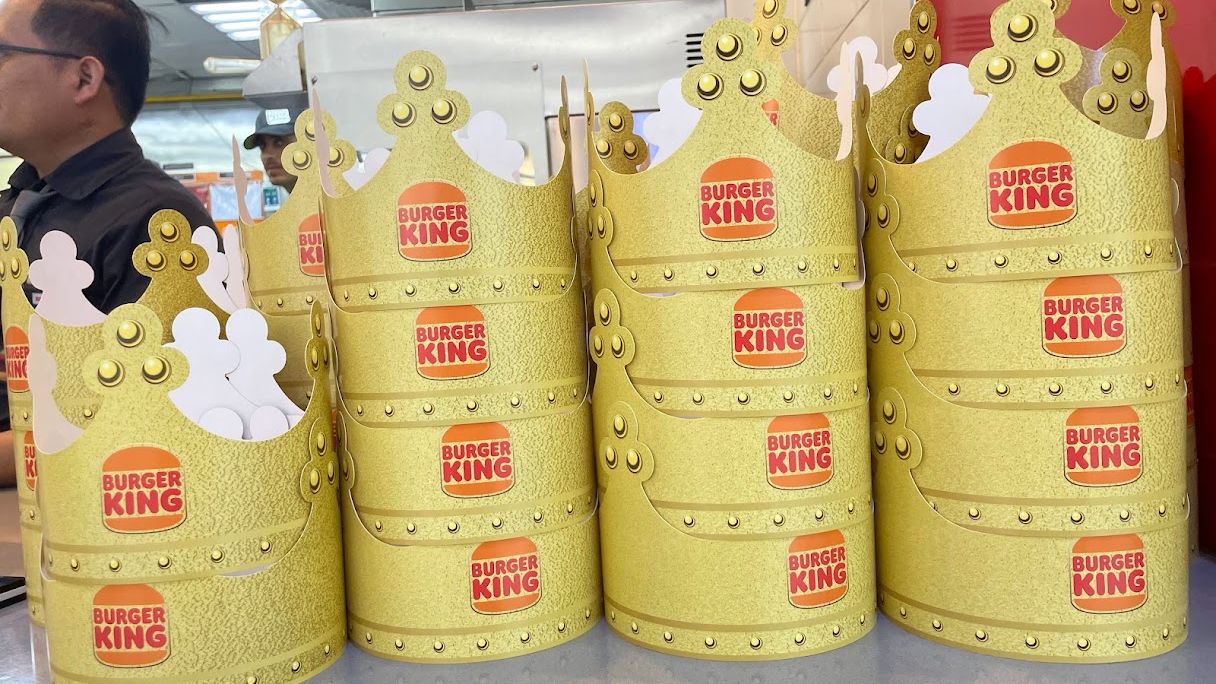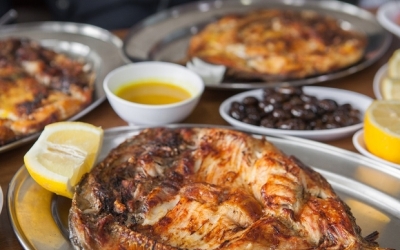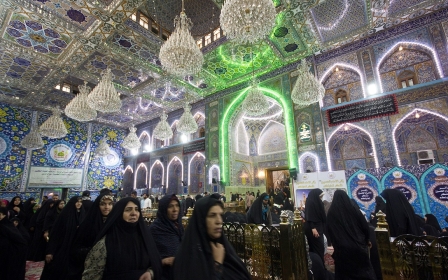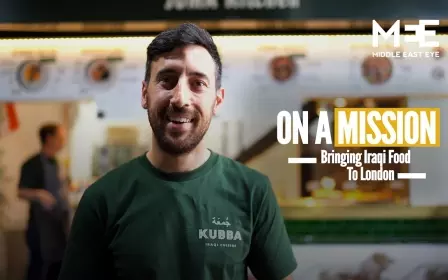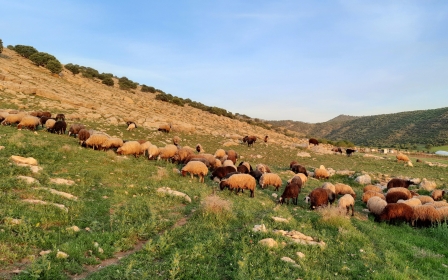Iraq: American fast food is leaving its mark two decades after the invasion
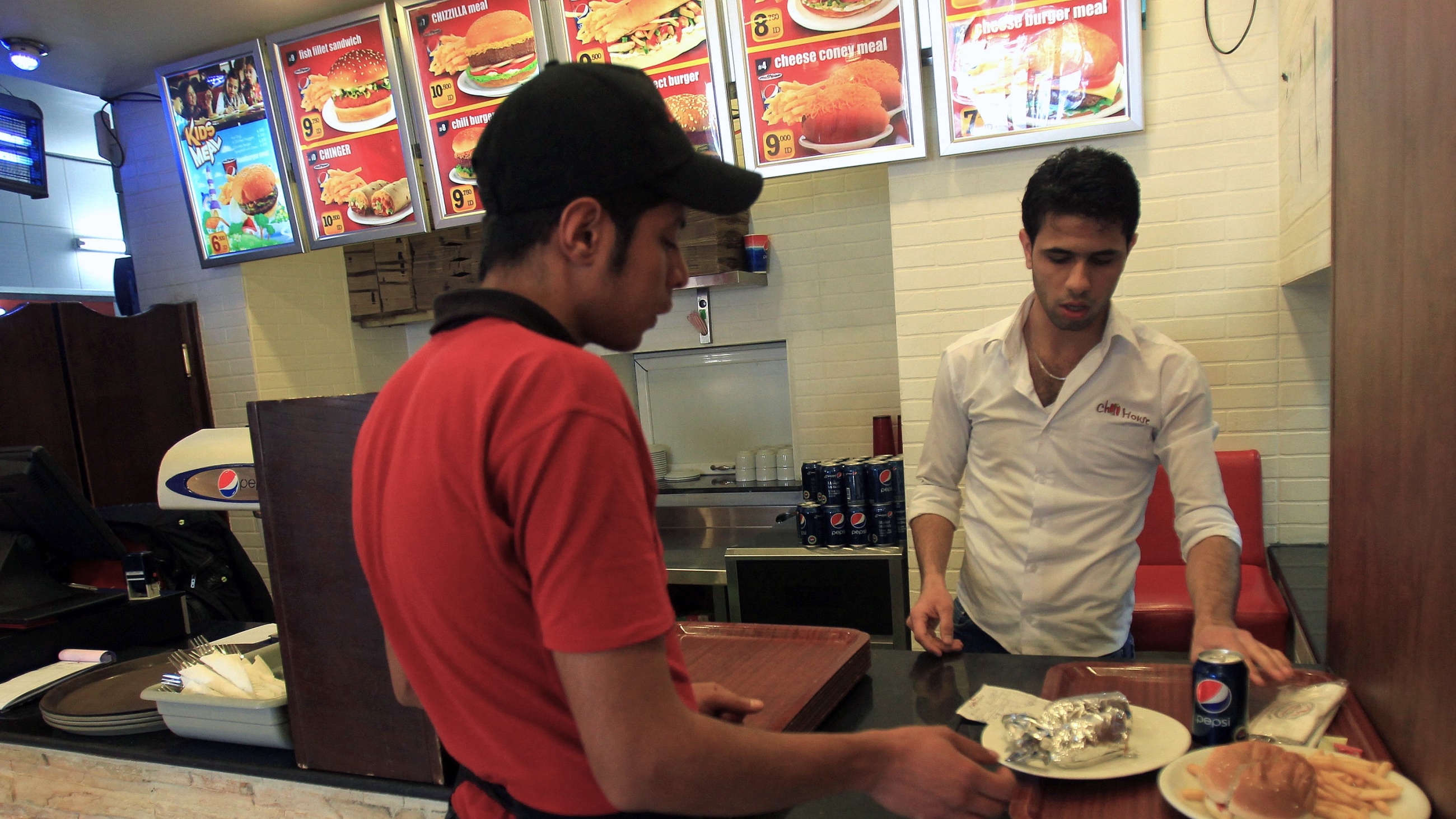
In 2003, the United States invaded Iraq to topple Saddam Hussein. Twenty years later to the month, the American ambassador to the country, Alina Romanowski, attended the opening of Burger King's newest outlet, in Erbil.
As part of the burger diplomacy, she cut the red ribbon to the third outlet in the city, the 12th and largest branch in the country.
The US invasion killed at least 300,000 Iraqis, changing the country and the world. Whether one thinks Iraq is in a better state since then, American military power and diplomacy there has since been checked by a beefier regional presence of its adversaries, including Russia and China.
Nonetheless, it appears fast-food chains and "American values", such as excess and convenience, are making their mark on the Iraqi market.
Fast food has been at the centre of international relations and globalisation for decades. Prior to the fall of Saddam, The Economist magazine introduced its Big Mac Index in 1986 to monitor the purchasing power of foreign currencies.
New MEE newsletter: Jerusalem Dispatch
Sign up to get the latest insights and analysis on Israel-Palestine, alongside Turkey Unpacked and other MEE newsletters
A decade later, New York Time's journalist Thomas Friedman published his "Golden Arches Theory", in which he put forth an observation that no two countries with a McDonald's had ever fought a war against one another.
There are several counter-examples to dispute this idea, but still there were no Mickey-D's in Iraq.
Due to economic sanctions and an ironically named 1996 oil-for-food programme that actually left Iraqis starving across the country, there were no American fast-food brands operating in the country until after the invasion.
Changing food landscape
Today, Iraq finally has its own alphabet soup of American junk-food chains. While a lot has been made about the bombings, occupation and botched US projects in Iraq, much less attention has been given to the burgers and onion rings and the long-term effects of American fast food on the country's food landscape.
The current flourishing of fast-food outlets has been a long time coming; while branded chains are new, local demand always seemed to be there.
Several copycats, such as the MaDonal’s and Matbax restaurants in the northern Kurdish city of Sulaymaniyah, sprouted in the 1990s in lieu of any enforcement of intellectual property rights.
Suleiman Qassab, the owner of the former, worked as a cook at the real thing while a refugee in Vienna, Austria, before returning to his homeland after the establishment of the autonomous Kurdish region.
When he moved back to Iraq, McDonald's allegedly turned down his franchise request, so he opened his own restaurant instead, a homage to the original.
As an elementary school teacher in the late 2000s in Iraq, I also recall my students showing off ketchup-stained paper bags at lunch with day-old burgers their parents had got them from fast-food outlets while in transit in Dubai or Istanbul.
The trip, however, was much smoother than in other parts of the region - Gazans previously paid to get their not-so-fast-food fix smuggled in through tunnels from Egypt.
After the invasion of Iraq, US military bases set up in the subsequent occupation were outfitted with several chains, acting as a sort of taste incubator for Iraqis working there.
The Joint Base Balad, north of Baghdad, had options that would rival any food court in middle America, including Burger King, Pizza Hut, Cinnabon, Subway and Popeyes.
From these bases, some chains eventually made it out beyond the walls and into Iraqi mainstream society.
Restaurant openings began to celebrate changes on the ground. After Mosul was freed from Islamic State in July 2017, McMosul restaurant opened its shiny doors to denizens of the city, signalling the start of a new chapter.
Beating local fast food
Iraqis are still waiting for the real golden arches to come to town. The local food delivery app Lezzoo even teased the option to order McDonald's on April Fools' Day.
Nevertheless, citizens have many other options, including Hardees, Papa Johns and Church's Chicken, named Texas Chicken in the Middle East.
When branches do open, they do so with fanfare, and sometimes even with some official US representation present. For instance, in 2022, then US ambassador Matthew Tueller was on hand for the opening of Cold Stone Creamery in Baghdad.
This phenomenon is particularly evident in Iraq's Kurdish region. As you pull out of Erbil International Airport, the autonomous region's capital, the sparkling two-storey Burger King beckons you to its play place and koi pond. A Kentucky Fried Chicken with a drive-through is only a few U-turns away.
Yadgar Mirani, the co-founder and CEO of Lezzoo, is fascinated by how quickly US-style fast food has taken over the market.
"When burger and fried chicken chains landed in Iraq, I never thought they could become the top categories [amid] local foods like shawarma, rice and stews and grilled meat," Mirani told MEE.
Hamburgers and fried chicken are the most popular options across the country, he said, and they have "remained dominant throughout our delivery service".
Iraqis may love "Kentucky" most of all, a colloquial shorthand for fried chicken that applies both to the original recipe and its many imitators.
"Everyone here loves Kentucky," said Amir Mekhael, who represents KFC in Iraq through the Americana Group, a Kuwaiti food company headquartered in Sharjah. "Everyone is coming to the source of the original chicken."
American fast-food chains, however, indulge in product localisation to adapt to local tastes.
The Rizo bowl, one of the most popular items at KFC in Iraq, contains crispy, boneless chicken drenched in sweet and spicy sauce on a bed of saffron-yellow rice.
Although not quite as bold as Pizza Hut's "Chee-Zee Marmite Stuffed Crust" in New Zealand or Taco Bell's "Chocodilla", which replaces cheese with Baby Ruth chocolate, the Rizo bowl is helping KFC become a staple in Iraq.
Drive-throughs, a popular feature of fast-food chains in the US, have also been introduced to Iraq, offering a portal to an American lifestyle obsessed with speed and efficiency.
This might be what attracted Nechirvan Barzani, President of the Kurdistan Region, to the KFC quick-service window one evening. They gel with Iraqi cities becoming less pedestrian friendly and offer anonymity.
"Its very popular, they love the drive-through," Mekhael said.
'Everyone wants a whopper'
The franchises also offer entry-level jobs for thousands in the country. "Everyone wants a whopper!" Zein, who works at a Burger King branch, told me after the mad rush of customers who arrived to break their fast during the holy month of Ramadan.
He has worked there for the past year and has met customers from across the world. He is appreciative and has learned a lot, from leading a team to dealing with people and gaining "experiences in building burgers".
Popular books and documentaries, such as Fast Food Nation and Supersize Me, have meanwhile helped foster a social reckoning with the production and health impacts of fast food in the United States.
Proximity to fast food was found to increase the risk of being overweight or obese, according to a study by New York University School of Medicine.
However, the deep-fried icon of Americana does not appear to have had any cultural reconsideration in Iraq. "I see people who come eat here every day," Zein told me at the end of his shift.
The long-term cost of such sought-after conveniences in Iraq is yet to be understood, but fast food is a harbinger of a broader reckoning with consumer capitalism. US brands have come in and transformed the country since the invasion.
This article is available in French on Middle East Eye French edition.
Middle East Eye delivers independent and unrivalled coverage and analysis of the Middle East, North Africa and beyond. To learn more about republishing this content and the associated fees, please fill out this form. More about MEE can be found here.


